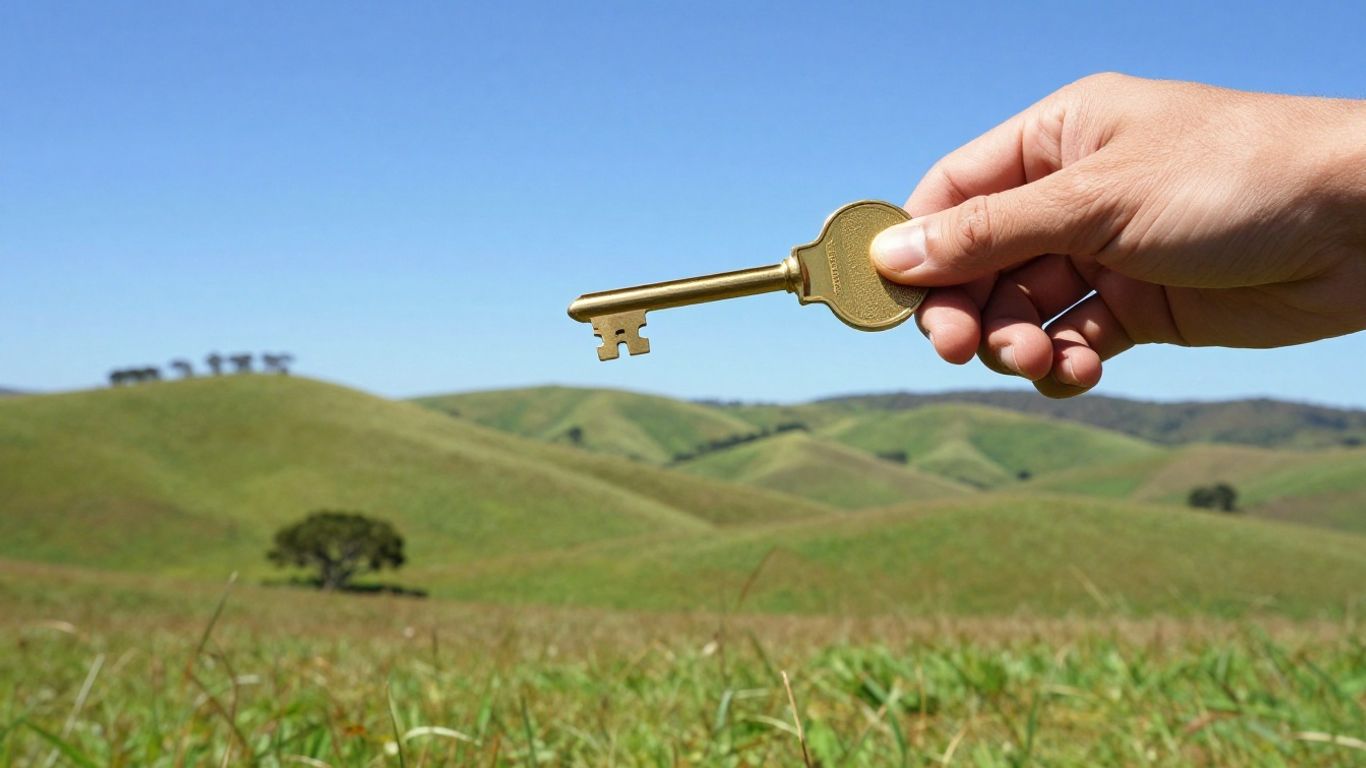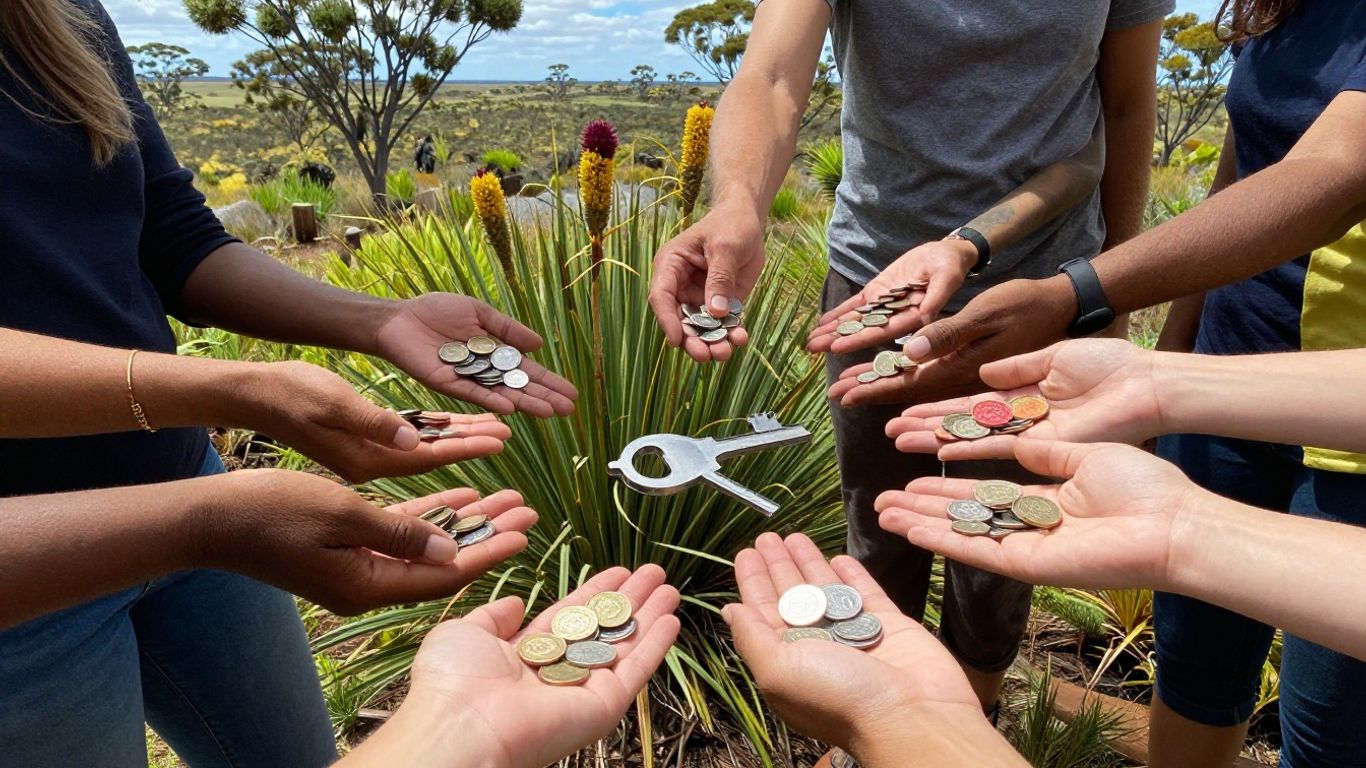Thinking about putting your hard-earned cash into Australian investments? It’s a smart move, but like anything with money, it pays to know what you’re getting into. Whether you’re a local looking to grow your savings or an Aussie living overseas wanting to keep your money working back home, this guide is for you. We’ll break down the basics of Australian investments, from shares to property, and touch on how to make sure it all works for your financial future. Let’s get started.
Key Takeaways
- When looking at Australian investments, know your local options and how they fit with what you want to achieve financially.
- Always check the tax rules for your investments in Australia, especially if you’re living overseas.
- Investing in Australian shares means understanding the risks and spreading your money around to reduce those risks.
- Property in Australia can be a good long-term bet, but it’s a big commitment with its own set of things to sort out.
- Getting professional advice from financial planners and tax experts can make managing your Australian investments much smoother.
Understanding Australian Investments
Getting your head around investing in Australia can feel like a lot at first, especially if you’re new to it all. But really, it’s about figuring out what you want to do with your money and then finding the right way to make it happen here.
Exploring Local Investment Options
Australia has a bunch of different ways you can put your money to work. You’ve got your shares, property, bonds, and even things like managed funds. Each one works a bit differently and comes with its own set of ups and downs. It’s not a one-size-fits-all situation, so knowing what’s out there is the first step. Some options are pretty straightforward, while others are a bit more complex. For instance, buying shares means you own a tiny piece of a company, and its value goes up or down with the company’s performance. Property, on the other hand, is a physical asset that can generate rental income and potentially increase in value over time. It’s worth looking into the various investment options available to see what might suit you.
Aligning Investments with Financial Goals
So, why are you investing in the first place? Are you saving for a house deposit, planning for retirement, or just looking to grow your wealth over the long haul? Your goals are super important because they’ll guide your investment choices. If you need your money in a few years, you probably don’t want to put it all into something super risky that could drop in value. On the flip side, if you’ve got decades before you need the cash, you might be able to take on a bit more risk for potentially bigger rewards.
Here’s a quick way to think about it:
- Short-term goals (1-3 years): Think about keeping your money safe and easily accessible. Maybe a high-interest savings account or a term deposit.
- Medium-term goals (3-10 years): You might consider investments that offer a bit more growth potential, like balanced managed funds or some lower-risk shares.
- Long-term goals (10+ years): This is where you can often afford to be a bit more adventurous, looking at growth shares, property, or diversified investment portfolios.
Navigating Investment Vehicles
Investment vehicles are basically the tools or structures you use to invest. Think of them as the different types of accounts or products that hold your investments. You’ve got things like:
- Direct Shares: Buying shares directly in companies listed on the Australian Securities Exchange (ASX).
- Managed Funds: Where a professional fund manager pools money from many investors to buy a range of assets, like shares or bonds.
- Exchange-Traded Funds (ETFs): Similar to managed funds but trade on the stock exchange like shares, often tracking a specific index.
- Property: Buying real estate, either directly or through a property trust.
- Superannuation Funds: Your retirement savings are held in a super fund, which invests your money on your behalf.
Choosing the right vehicle depends on how much you want to be involved, how much risk you’re comfortable with, and what kind of returns you’re hoping for. It’s not just about picking an investment; it’s about picking the right way to hold and manage it.
Key Considerations for Australian Investments
Alright, so you’re thinking about putting your hard-earned cash into Australian investments. That’s a smart move, but before you jump in, there are a few things you really need to get your head around. It’s not just about picking the ‘hot’ stock or the ‘best’ suburb; there’s a bit more to it than that. We’re talking about making sure your money works for you, not against you, and that you’re not caught out by any unexpected curveballs.
Understanding Tax Implications
This is a big one, and honestly, it can get a bit confusing. Australia has its own tax system, and how your investments are taxed can really affect your overall returns. For instance, if you’re earning income from shares, you’ll need to consider things like dividends and capital gains. Property investors have their own set of rules, too, with deductions for expenses like interest on loans, repairs, and property management fees. It’s super important to know what you can claim back to reduce your taxable income.
Here’s a quick look at some common tax points:
- Income Tax: This applies to rental income from properties and dividends from shares.
- Capital Gains Tax (CGT): You’ll pay this on profits when you sell an investment asset for more than you paid for it.
- Deductions: Many expenses related to earning investment income can be claimed, reducing your tax bill.
Don’t just assume you know how it all works. Tax laws can change, and what applied last year might not apply this year. Getting this wrong can cost you.
Managing Australian Investments from Abroad
If you’re an Aussie living overseas, or even if you’re just planning a long stint abroad, managing your Australian investments from a distance adds another layer of complexity. You’ve got to keep track of everything, and importantly, understand how your investments are viewed from both Australian and your current country’s tax perspectives. Double taxation is a real risk if you’re not careful. It means paying tax on the same income in two different countries, which nobody wants.
- Staying Connected: Make sure you have reliable ways to access your investment accounts and statements.
- Communication: Keep your financial institutions and tax advisors updated with your overseas address and contact details.
- Currency Fluctuations: If you’re earning income in Australian dollars but spending in another currency, exchange rates can impact your returns.
Staying Informed on Australian Tax Laws
This isn’t a ‘set and forget’ situation. The Australian tax landscape is always evolving. New legislation can be introduced, and existing rules can be tweaked. For investors, this means you need to make an effort to keep up. Ignoring changes could mean missing out on opportunities or, worse, falling foul of the law. It’s about being proactive rather than reactive. Think of it like keeping your car serviced – a little bit of regular attention prevents bigger problems down the track.
- Official Sources: Keep an eye on the Australian Taxation Office (ATO) website for official updates.
- Financial News: Reputable financial news outlets often report on significant tax changes affecting investors.
- Professional Advice: Your accountant or financial advisor should be on top of these changes and advise you accordingly.
Investing in Australian Shares
Alright, let’s talk about shares. Investing in the Australian share market can be a pretty good way to grow your money over time, but it’s not exactly like picking up a lottery ticket. It takes some thought and a bit of know-how.
Understanding Share Market Risks
So, the big thing with shares is that their value can go up and down. It’s just how it works. If you put all your eggs in one basket, say, all your money into one company or one industry, you’re taking a bigger gamble. If that one company or industry hits a rough patch, your whole investment could take a hit. It’s tough to know for sure which shares are going to skyrocket and when. You really need to do your homework to figure out what you’re buying.
Strategies for Direct Share Investing
When you’re buying shares directly, you’re picking individual companies. It can be rewarding, but it also means you’re responsible for the research. You’ll want to look into the company’s performance, its industry, and what its future might look like. It’s not just about picking a name you recognise. Some people like to get their hands dirty this way, picking specific companies they believe in. Others prefer to spread their risk more broadly.
The Importance of Diversification
This is a big one, seriously. Diversification means not putting all your money into one place. Think of it like having different types of investments. You could spread your money across different companies, different industries, and even different types of investments altogether. This way, if one part of your portfolio isn’t doing so well, other parts might be picking up the slack. It helps smooth out the ride. You can do this by buying shares in a bunch of different companies, or you could look into things like Exchange Traded Funds (ETFs) or managed funds. These can give you a ready-made mix of shares, which is a pretty easy way to get diversified without having to pick dozens of individual stocks yourself. You can still buy a few direct shares you like on top of that, if you want.
Trying to time the market, or guessing which stock will be the next big thing, is a game most people, even the pros, find really hard to win consistently. It’s usually better to focus on the long-term growth of your investments rather than trying to make quick bucks.
Here’s a quick look at how you might spread your investments:
- Industries: Technology, healthcare, mining, retail, finance.
- Company Size: Large established companies, smaller growing businesses.
- Investment Type: Direct shares, ETFs, managed funds.
- Geography: Australian companies, international companies (though this guide focuses on Australia).
Remember, investing in shares is a long game. It’s not about getting rich quick. It’s about building wealth steadily over time. Doing your homework and spreading your risk are your best mates here.
Property Investment in Australia

Investing in Australian property has long been a go-to strategy for building wealth, and it’s easy to see why. Australia’s economy is pretty stable, the population keeps growing, and historically, the housing market has delivered solid returns. This means Australian real estate can be a great way to build equity over the long haul and get some passive income coming in.
Why Invest in Australian Property
So, what makes Aussie property a good bet? For starters, there’s the capital growth. Places like Sydney and Melbourne are consistently popular, not just for living but for investment too. Population growth in these major cities means more demand for housing, which can push prices up. Plus, rental yields have been pretty good in many areas. It’s not just the big cities, though. Regional hubs and coastal spots can also offer decent returns without the hefty price tags of the capitals. The consistent, low-risk nature of the Australian property market, with a history of steady capital appreciation, makes it a compelling choice for long-term investors.
Here are a few more reasons:
- Population Growth: Major cities are attracting more people, leading to higher demand for homes.
- Rental Demand: Low vacancy rates in many areas mean you’re more likely to find tenants quickly.
- Economic Stability: Australia’s generally strong economy provides a good backdrop for property investment.
- Favourable Policies: Compared to some other countries, Australia has relatively straightforward rules for property investment, even for overseas buyers.
Property investment is a long-term game. It’s not something you jump into without doing your homework. You need to think about where you’re putting your money, what kind of property it is, and how you’ll manage it. It’s about more than just buying a house; it’s about making a smart financial decision that fits your goals.
Navigating Property Investment Complexities
Buying property here isn’t always a walk in the park. There are a few things to get your head around. You’ve got to figure out your budget and how much you can borrow. Then there’s the actual property itself – its condition, potential for renovations, and what the local market is doing. Don’t forget about ongoing costs like rates, insurance, and any body corporate fees if it’s an apartment. You also need to think about who’s going to manage the property if you’re not living nearby. Finding a good property manager can make a big difference.
Some key things to consider when you’re looking to buy:
- Location: This is still the golden rule. Look for areas with good job prospects, transport links, and amenities that people want.
- Property Type: Are you after a house, an apartment, or something else? Each has its own pros and cons for investors.
- Rental Yield: Work out how much rent you can expect to get compared to the property’s price. You want this to cover your costs and hopefully give you some extra cash.
- Capital Growth Potential: Research the area’s history and future prospects for property value increases.
Real Estate Considerations for Investors
When you’re looking at specific properties, think about the practical stuff. How old is the building? Will it need a lot of repairs soon? What are the local council rates and water charges? If it’s an apartment or townhouse, what are the strata fees like? These costs add up and affect your overall return. Also, consider the market cycles. Property prices go up and down, and you don’t want to buy right before a downturn. It’s wise to look at areas with strong population growth and infrastructure development plans, as these often signal future price increases. For beginner property investors, establishing a clear budget is a good first step [ef5b].
Retirement Planning in Australia
Getting your head around retirement planning in Australia can feel like a big task, but it’s super important for your future self. We’ve got a few main systems in place to help Aussies save up for when they stop working. It’s not just about chucking money aside; it’s about making that money work for you over the long haul.
Australian Retirement Account Systems
Australia’s retirement savings system is primarily built around ‘superannuation’, often just called ‘super’. It’s a compulsory savings scheme where your employer pays a percentage of your salary into a fund for you. Right now, that’s 11.5% of your ordinary time earnings, and it’s set to go up to 12% by mid-2025. But super isn’t just for employees; you can also make extra contributions yourself, either before or after tax, which can be a smart move for boosting your nest egg.
Here’s a quick look at how it generally works:
- Employer Contributions: Your boss pays a set amount into your super fund. This is the backbone of the system.
- Your Contributions: You can choose to add more money yourself. This could be through ‘salary sacrificing’ (where you pay tax on the money before it goes into super, often at a lower rate) or by making after-tax contributions.
- Investment Growth: The money in your super fund is invested, and it grows over time. You usually get to choose how your money is invested, from low-risk options to more growth-focused ones.
- Government Co-contributions: If you’re on a lower to middle income and make after-tax contributions, the government might even chip in a bit extra. It’s called a ‘government co-contribution’, and it’s basically free money for your retirement.
Maximising Tax Advantages for Retirement
Saving for retirement is one thing, but doing it in a tax-smart way is another. Australia offers some pretty good tax breaks when it comes to superannuation, which is why it’s often recommended as a top place to put your long-term savings.
- Concessional Contributions: These are contributions made before tax is applied. This includes your employer’s contributions and any salary sacrifice amounts you make. They’re taxed at a flat rate of 15% in the super fund, which is usually less than your personal income tax rate.
- Non-Concessional Contributions: These are contributions you make from money you’ve already paid tax on. While they don’t get the immediate tax break on entry, they can still be beneficial for growing your retirement savings, especially if you’ve hit the concessional cap.
- Tax-Free Earnings in Retirement: Once you reach a certain age and meet conditions of release (like retiring), the earnings on your super balance are generally tax-free. This is a massive benefit for drawing down your savings later on.
The Australian Taxation Office sets limits on how much you can contribute each year to get these tax benefits. Exceeding these caps can lead to extra tax bills, so it’s worth keeping an eye on them, especially if you’re making significant extra contributions.
Long-Term Wealth Building Strategies
Retirement planning isn’t just about super, though it’s a big part of it. Think about building wealth over the long term as a multi-pronged approach. While super is designed for retirement, you might have other financial goals along the way, like buying property or saving for your kids’ education. Using different investment vehicles that suit different timeframes and goals is key.
- Superannuation: As we’ve covered, this is your primary retirement savings vehicle, benefiting from tax advantages and compulsory contributions.
- Investment Properties: For many Aussies, property has been a solid way to build wealth. It can provide rental income and capital growth, but it also comes with its own set of costs and risks.
- Share Market Investing: Investing directly in shares or through managed funds and ETFs can offer good growth potential over the long term. Diversification is really important here to spread your risk.
- Other Savings Accounts: For shorter-term goals or emergency funds, keeping money in high-interest savings accounts or term deposits provides security and easy access, though with lower growth potential.
Professional Advice for Australian Investments

Look, trying to figure out investments on your own can feel like trying to assemble IKEA furniture without the instructions – confusing and potentially a bit disastrous. Especially when you’re dealing with Australian rules, which can be a bit of a maze. That’s where getting some help comes in handy. It’s not about admitting defeat; it’s about being smart with your money.
Engaging Financial Advisers
Finding the right financial adviser is a bit like finding a good tradie. You want someone you can trust, who knows their stuff, and who actually listens to what you need. They can help you sort through all the different investment options, from shares to property, and figure out what actually makes sense for your personal situation and your long-term plans. They’ll look at your income, your debts, your goals – all that jazz – and help you build a plan.
- Initial Consultation: Most advisers will offer a first chat to see if you’re a good fit. Use this to ask questions and get a feel for their style.
- Credentials Check: Make sure they’re licensed and regulated by the Australian Securities and Investments Commission (ASIC).
- Fee Structure: Understand how they get paid – whether it’s a flat fee, a percentage of your assets, or commissions. Transparency is key here.
- Specialisation: Some advisers focus on specific areas like retirement planning or ethical investing. See if their specialty matches your needs.
Seeking Specialist Tax Professionals
Tax is one of those things that can really eat into your investment returns if you’re not careful. Australian tax laws are complex, and they change. If you’re an expat or have investments spread across different countries, it gets even trickier. A good tax agent or accountant who knows the ins and outs of Australian tax, especially for investors, can save you a lot of headaches and potentially a fair bit of cash. They can help you claim all the deductions you’re entitled to and make sure you’re not paying more tax than you need to.
Don’t just assume you know how your investments are taxed. Things like capital gains, rental income, and dividends all have specific rules. Getting it wrong can lead to penalties, so it’s worth the investment to get expert advice.
Leveraging Online Resources
While professional advice is great, there’s also a ton of information out there if you know where to look. The Australian Securities and Investments Commission (ASIC) website has heaps of educational material. There are also reputable financial news sites and blogs that can keep you updated on market trends and economic news. Just be a bit careful – not everything you read online is accurate or relevant to your situation. Stick to trusted sources and remember that online information is generally not a substitute for personalised advice.
- ASIC’s MoneySmart: A government-backed site with unbiased information on financial topics.
- Australian Taxation Office (ATO): For all things tax-related, including guides for investors.
- Reputable Financial News: Websites like the Australian Financial Review or the Sydney Morning Herald’s business section can provide market updates.
Wrapping Up Your Aussie Investment Journey
So, we’ve covered a fair bit about getting your money working for you here in Australia. It’s not always straightforward, is it? Whether you’re looking at shares, property, or just trying to figure out superannuation, there’s a lot to take in. Remember, the goal isn’t to become a finance whiz overnight. It’s about making sensible choices that fit your life and your plans. Don’t be afraid to ask for help from a professional if you’re feeling a bit lost – that’s what they’re there for. Keep learning, stay curious, and you’ll be well on your way to building a solid financial future right here on home soil.
Frequently Asked Questions
What are the main ways Aussies can invest their money?
There are heaps of ways to invest your money here in Australia! You can put your cash into shares of companies, which means you own a tiny piece of that business. Property is another big one – buying houses or apartments to rent out or sell later. You can also invest in things like managed funds or exchange-traded funds (ETFs), which bundle lots of different investments together. Plus, don’t forget about your superannuation – that’s your retirement savings, and it’s invested too!
How do I make sure my investments are a good fit for what I want?
Think about what you’re saving for! Are you dreaming of a house deposit in a few years, or are you planning for retirement way down the track? Your goals will help decide how risky your investments should be. If you need the money soon, you’ll want safer options. If you’ve got ages before you need it, you might be able to take on a bit more risk for potentially bigger rewards.
What’s the deal with taxes when I invest in Australia?
Yeah, taxes are a big part of investing. When you make money from your investments, like selling shares for a profit or getting rent from a property, you’ll likely have to pay tax on it. It’s called capital gains tax for selling assets, and income tax for rent. It’s super important to understand these rules so you don’t get any nasty surprises. Some investments also have tax benefits, like your superannuation.
Is it hard to invest in Australian shares?
Investing in shares can seem a bit daunting at first, but it’s actually quite straightforward once you get the hang of it. You can buy shares through a stockbroker or an online trading platform. The main thing is to do your homework on the companies you’re thinking of investing in and spread your money around (that’s called diversification!) so you’re not putting all your eggs in one basket. It helps reduce the risk if one company doesn’t do so well.
Why do people invest in Australian property?
Property is a really popular investment in Australia because it’s generally seen as a stable way to grow your wealth over the long term. People buy houses or apartments hoping they’ll go up in value, or to rent them out to tenants for extra cash. Australia’s economy and population growth have often supported property prices, making it an attractive option for many.
Should I get a financial advisor for my investments?
It’s a really good idea to chat with a financial advisor, especially if you’re not sure where to start or if your financial situation is a bit complex. They can help you figure out your goals, understand all the different investment options, and create a plan that’s just right for you. They can also help you navigate things like taxes and superannuation. Think of them as your guide to making smart money moves!





